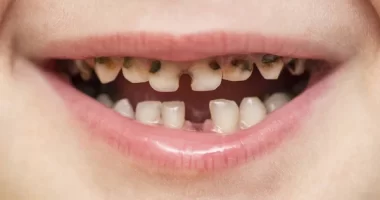Tonsil stones, or tonsilloliths, are often an overlooked cause of chronic bad breath. These small, calcified formations can lead to discomfort and embarrassment, making it essential to understand their formation, management, and prevention. If you’ve been struggling with persistent halitosis and suspect tonsil stones might be to blame, this guide will help you navigate the issue effectively.

What Are Tonsil Stones and How Do They Form?
Tonsil stones are small lumps that form in the crevices of the tonsils. They consist primarily of hardened debris, including dead cells, food particles, and bacteria. The tonsils contain folds known as crypts, which can trap these substances. Over time, the trapped material can calcify and form stones that range in size from a grain of rice to a pea.
The formation of tonsil stones is often linked to several factors:
- Poor Oral Hygiene: Inadequate brushing and flossing can lead to a buildup of bacteria and food debris.
- Chronic Tonsillitis: Recurrent inflammation of the tonsils can create larger crypts that are more prone to trapping debris.
- Dry Mouth: Conditions that reduce saliva flow can contribute to the accumulation of particles in the tonsils.
- Diet: Certain diets high in sugar or processed foods may promote bacterial growth in the mouth.
While tonsil stones are generally harmless, they can cause unpleasant symptoms such as bad breath, sore throat, and difficulty swallowing. Understanding their formation is crucial for effective management and prevention.
How to Get Rid of Tonsil Stones at Home
If you suspect you have tonsil stones, there are several home remedies you can try to alleviate symptoms and potentially dislodge the stones:
- Gargling with Salt Water: This simple remedy can help dislodge tonsil stones and reduce bacteria in the mouth. Mix one teaspoon of salt in a glass of warm water and gargle several times a day.
- Apple Cider Vinegar: Dilute apple cider vinegar with water and gargle. Its antibacterial properties may help break down the stones.
- Oral Irrigation: Using a water flosser on a low setting can gently flush out debris from your tonsils without causing damage.
- Coughing: Sometimes a forceful cough can help dislodge smaller stones naturally.
- Probiotics: Incorporating probiotic-rich foods like yogurt may help balance oral bacteria and reduce stone formation.
While these methods may provide relief, it’s important to avoid using sharp objects or excessive force to remove tonsil stones, as this could lead to injury or infection.
Preventing Tonsil Stones with Good Oral Hygiene

Maintaining excellent oral hygiene is key to preventing tonsil stones from forming in the first place. Here are some effective strategies:
- Regular Brushing and Flossing: Brush your teeth at least twice daily and floss regularly to remove food particles and plaque that could contribute to stone formation.
- Use Antibacterial Mouthwash: Rinsing with an antibacterial mouthwash can help reduce bacteria in your mouth that cause bad breath and contribute to tonsil stone development.
- Stay Hydrated: Drinking plenty of water helps maintain saliva production, which naturally cleanses the mouth and reduces bacterial growth.
- Avoid Smoking and Excessive Alcohol: Both smoking and heavy drinking can dry out your mouth, increasing the risk of stone formation.
- Manage Allergies: Addressing allergies that cause nasal congestion can prevent mucus buildup that may lead to tonsil stone development.
By incorporating these practices into your daily routine, you can significantly reduce your risk of developing tonsil stones.
When to See a Doctor for Tonsil Stones
While many people manage tonsil stones at home without issue, there are specific situations where medical attention is warranted:
- Persistent Symptoms: If you experience chronic sore throat or bad breath that doesn’t improve with home care, it’s time to consult a healthcare provider.
- Difficulty Swallowing or Breathing: If you notice significant trouble swallowing or breathing due to enlarged tonsil stones, seek medical help immediately.
- Recurrent Infections: Frequent bouts of tonsillitis or infections related to tonsil stones may require medical intervention.
- Large Stones: If you have large or painful stones that do not respond to home treatments, a doctor may recommend removal options such as laser treatment or even a tonsillectomy in severe cases.
Understanding when to seek professional help ensures that you receive appropriate care while minimizing discomfort associated with tonsil stones.
By recognizing the signs of tonsil stones and implementing preventive measures through good oral hygiene practices, you can effectively manage this condition and enjoy fresher breath.
Also Read | Top Home Remedies for Sinus Infections: Relieve Pain and Congestion Naturally









